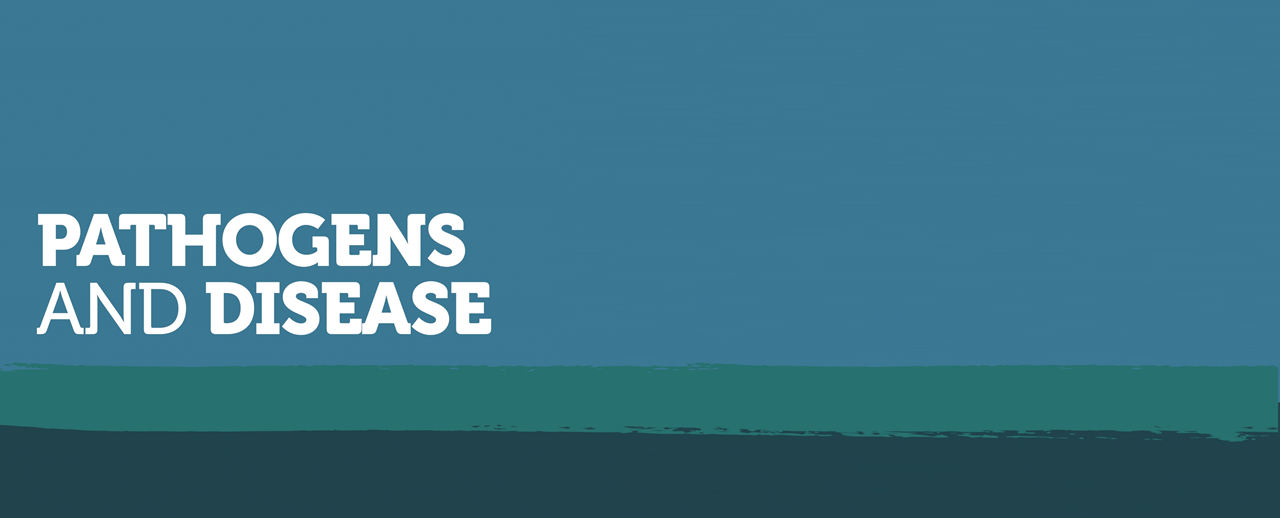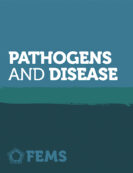Pathogens and Disease best student talk: Jana Ovciarikova
We send our congratulations to Jana Ovciarikova, who won the Best Student Talk at ToxoUK. This award is sponsored by our journal Pathogens and Disease.
 ToxoUK took place on the 14th of December 2021 in Cambridge, UK. Stephanie’s winning talk was titled “Mitochondrial membrane contact sites in Toxoplasma gondii“.
ToxoUK took place on the 14th of December 2021 in Cambridge, UK. Stephanie’s winning talk was titled “Mitochondrial membrane contact sites in Toxoplasma gondii“.
Read our interview with Jana about her research below:
What is your current position, and what was your scientific journey to get there?
As an enthusiast of biology and biochemistry, I chose to start my academic life with a biochemistry degree, at the University of Edinburgh. The exposure to exciting immunobiology research at Edinburgh inspired me to focus on immunology for my final years and Masters degree. This was my first step into the infections and immunity world.
Seeking to sample more aspects of the field I chose to join a parasitology lab as a technician, which is how I ended up with the team of Dr Sheiner at the WCIP, University of Glasgow. I fell in love with parasites, in my case T. gondii, and all the exciting challenges that its divergent biology presented. I was happy to generate the pioneering observation of mitochondrial contact sites with other organelles in T. gondii, which has since opened an entire niche in the T. gondii cell biology field. I decided I’d like to peruse this exciting study of how parasite mitochondrion interacts with other essential organelles and took it on as a PhD project, which is currently in its final stages.”
Could you describe the research your talk covered?
We know that all cells are very dynamic and there is ongoing communication between individual organelles. Over the last decade, the attention of the scientific community was intrigued by what became known as membrane contact sites (MCS) – a close apposition of membranes of different organelles that are actively held together by tether molecules to enable direct organelle exchange without membrane fusion. As is the case for many biological processes, most of our understanding of MCS comes from yeast and mammalian systems. T. gondii not only possess organelles that are not found in yeast and mammals, but the ‘shared’ organelles are highly divergent. Hence it is an excellent model to study divergent MCS. I have been exploring the molecular players of T. gondii mitochondrial MCS uncovering significant differences in the composition and function of T. gondii MCS compared to commonly studied models.”
What do you hope to focus your research on in the future?
I am staying in the parasitology field after the completion of my PhD to further explore the divergent organelles of the Apicomplexan parasites. I find it to be an amazing intersection between the known and unknown. Our primary understanding of how organelles work come from opisthokont studies and yet they represent only a small part within the eukaryotic diversity. Hence when it comes to apicomplexan organelles, there is typically a partial overlap with textbook organelle biology and all the exciting challenges arising from their divergent nature. In addition to enriching the field of eukaryotic cell biology with broad knowledge of divergent organisms, parasites-specific traits may present opportunities for drug discovery, which further motivates my future research.”
–
We use income from the FEMS Journals to fund grants, awards, and projects, and to support our knowledge sharing events and initiatives. Consider publishing your research with our journals to help the global microbiology community.
All but one of the FEMS journals are now fully open access (OA), with one journal, FEMS Microbiology Letters remaining a subscription journal with free-to-publish and OA options. Open access is key to supporting the FEMS mission of disseminating high quality research as widely as possible: when high quality, peer reviewed sound science is open access, anyone, anywhere in the world with an internet connection, can read it.







